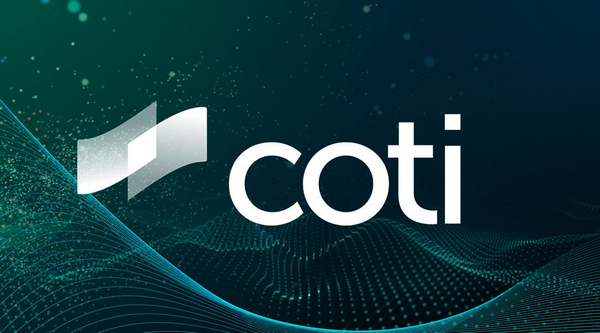-
 Bitcoin
Bitcoin $94,178.4344
-0.21% -
 Ethereum
Ethereum $1,792.1439
1.06% -
 Tether USDt
Tether USDt $1.0004
-0.01% -
 XRP
XRP $2.1954
0.26% -
 BNB
BNB $604.8300
0.13% -
 Solana
Solana $148.3767
-3.29% -
 USDC
USDC $0.9999
0.00% -
 Dogecoin
Dogecoin $0.1818
0.59% -
 Cardano
Cardano $0.7073
-0.83% -
 TRON
TRON $0.2518
3.33% -
 Sui
Sui $3.4387
-5.40% -
 Chainlink
Chainlink $14.8050
-1.02% -
 Avalanche
Avalanche $21.8748
-1.94% -
 Stellar
Stellar $0.2881
1.83% -
 Shiba Inu
Shiba Inu $0.0...01426
2.08% -
 UNUS SED LEO
UNUS SED LEO $9.0881
0.56% -
 Toncoin
Toncoin $3.2240
0.66% -
 Hedera
Hedera $0.1917
-3.09% -
 Bitcoin Cash
Bitcoin Cash $360.7143
-1.88% -
 Polkadot
Polkadot $4.2445
-0.33% -
 Litecoin
Litecoin $85.8084
-0.01% -
 Hyperliquid
Hyperliquid $17.6511
-5.92% -
 Dai
Dai $1.0000
-0.01% -
 Bitget Token
Bitget Token $4.4317
-0.58% -
 Ethena USDe
Ethena USDe $0.9994
-0.01% -
 Pi
Pi $0.6459
-0.88% -
 Monero
Monero $229.1550
0.01% -
 Pepe
Pepe $0.0...09169
4.95% -
 Uniswap
Uniswap $5.8045
-0.25% -
 Aptos
Aptos $5.5452
0.03%
What kind of currency is COTI? A comprehensive introduction to the COTI project in one article
COTI, known as the "Currency of the Internet," is a decentralized payment network leveraging blockchain technology for secure, instant, and low-cost digital transactions across platforms.
Oct 31, 2024 at 09:29 am

What is COTI Currency? A Comprehensive Guide to the COTI Project
1. Overview of COTI
COTI (Currency of the Internet) is a decentralized payment network that aims to revolutionize the way digital payments are conducted online. It uses blockchain technology to facilitate secure, instant, and low-cost transactions across various platforms and currencies.
2. COTI Token (COTI)
COTI token is the native cryptocurrency of the COTI network. It serves the following purposes:
- Payment: COTI is used as a medium of exchange for transactions on the COTI platform.
- Staking: COTI holders can stake their tokens to earn rewards and support the network's security.
- Governance: COTI token holders have voting rights in the COTI decentralized autonomous organization (DAO).
3. COTI Platform
The COTI platform consists of several key components:
- MultiDAG: COTI utilizes a Directed Acyclic Graph (DAG) blockchain structure, which allows for faster and more scalable transactions.
- Trustchain: A permissioned blockchain that handles high-volume transactions for enterprise use cases.
- Stablecoins: COTI issues stablecoins (COTUSD, COTEUR) pegged to fiat currencies for seamless cross-border payments.
- Payment Gateway: A solution for businesses to accept cryptocurrencies and fiat currencies as payment methods.
4. Use Cases of COTI
COTI provides a wide range of payment solutions for various industries:
- E-commerce: Online businesses can accept COTI and other cryptocurrencies for payments.
- Finance: Payment processing, stablecoin issuance, and cross-border remittances.
- Gaming: In-game purchases and virtual currency transactions.
- Social media: Tipping, rewards, and content monetization.
5. COTI Governance
COTI is a community-governed network. COTI token holders participate in the COTI Trustchain DAO to make decisions about platform development, governance, and ecosystem partnerships.
6. COTI Partnerships
COTI has established partnerships with numerous organizations, including Sidechain Alliance, Chainlink, and Banxa, to enhance its offerings and expand its ecosystem.
7. COTI Future Plans
COTI continues to develop its platform and expand its use cases. Future plans include:
- Central Bank Digital Currencies (CBDCs): COTI is exploring solutions for issuing and managing CBDCs.
- Non-Fungible Tokens (NFTs): COTI aims to provide support for NFTs within its platform.
- Decentralized Finance (DeFi): Integration with DeFi protocols for lending, borrowing, and yield farming.
Conclusion
COTI is a promising payment network that leverages blockchain technology for efficient and secure digital payments. With its multiDAG architecture, stablecoins, payment gateway, and community governance, COTI offers a comprehensive payment solution for various industries. Its ongoing development and strategic partnerships position it for further growth and adoption in the future of digital finance.
Disclaimer:info@kdj.com
The information provided is not trading advice. kdj.com does not assume any responsibility for any investments made based on the information provided in this article. Cryptocurrencies are highly volatile and it is highly recommended that you invest with caution after thorough research!
If you believe that the content used on this website infringes your copyright, please contact us immediately (info@kdj.com) and we will delete it promptly.
- How High Can SUI Price Spike This Cycle? Analyst Reveals His Realistic Price Target
- 2025-04-26 21:15:13
- Bitcoin (BTC) Crosses $95,000 for the First Time Since February 2025
- 2025-04-26 21:15:13
- Bitcoin Supply In Profit Has Crossed The 87% Mark
- 2025-04-26 21:10:13
- BNB Price Spiked After Binance Published Its Updated Listing Standards
- 2025-04-26 21:10:13
- SUI Price Explodes 70% as TVL Hits $1.64B, DEX Volume Soars 177%
- 2025-04-26 21:05:13
- Dogecoin (DOGE) Price Prediction: Will the Memecoin Hit $1 by May 2025?
- 2025-04-26 21:05:13
Related knowledge

What is Ethereum’s Slashing mechanism and how to punish malicious behavior?
Feb 20,2025 at 03:08am
Key PointsOverview of slashingDifferent types of slashing in EthereumIncentives and consequences of slashingIdentifying and reporting slashed validatorsOngoing discussions and potential improvementsEthereum's Slashing Mechanism: Punishing Malicious BehaviorEthereum's slashing mechanism is an essential tool for ensuring network security and punishing mal...

What is the verifier node of Ethereum and how to become a verifier?
Feb 19,2025 at 06:00pm
The Verifier Node of Ethereum: A Comprehensive GuideKey Points:What is a Verifier Node?How to Become a Verifier NodeResponsibilities and Rewards of a Verifier NodeMinimum Requirements for Becoming a Verifier NodePotential Difficulties in Running a Verifier Node1. What is a Verifier Node?A Verifier Node is an independent entity on the Ethereum network th...

What is Ethereum’s staking, and how to participate and earn money?
Feb 19,2025 at 04:37pm
Key Points:Understanding Ethereum's Staking MechanismSteps to Participate in StakingBenefits and Rewards of StakingSecurity and Risk ConsiderationsTechnical Requirements and Hardware OptionsPotential Challenges and Troubleshooting TipsFAQs on Ethereum StakingWhat is Ethereum's Staking?Proof-of-Stake (PoS) is a consensus mechanism used in blockchain netw...

What is Ethereum’s DAO (Decentralized Autonomous Organization) and how does it work?
Feb 20,2025 at 03:12am
Key PointsDefinition and Structure of a DAOGovernance and Decision-Making in DAOsBenefits and Use Cases of DAOsChallenges and Limitations of DAOsWhat is Ethereum's DAO (Decentralized Autonomous Organization) and How Does It Work?Definition and Structure of a DAOA Decentralized Autonomous Organization (DAO) is an innovative governance and management fram...

What is Ethereum's multi-signature wallet and how to improve security?
Feb 20,2025 at 02:18pm
Key Points:Understanding the Concept of a Multi-Signature WalletBenefits and Drawbacks of Multisig WalletsRequirements for Setting Up a Multisig WalletStep-by-Step Guide to Generating a Multisig WalletImplementing Strategies for Enhanced Security1. Understanding the Concept of a Multi-Signature WalletA multi-signature (multisig) wallet in the Ethereum e...

What is Ethereum's oracle and how to provide data for smart contracts?
Feb 21,2025 at 01:30am
Key Points:Understanding the concept of oracles in EthereumExploring different types of oraclesDetailed guide on how to provide data for smart contractsAddressing potential challenges and considerationsWhat is Ethereum's Oracle?Oracles are crucial components in the Ethereum ecosystem, enabling smart contracts to access real-world data and off-chain even...

What is Ethereum’s Slashing mechanism and how to punish malicious behavior?
Feb 20,2025 at 03:08am
Key PointsOverview of slashingDifferent types of slashing in EthereumIncentives and consequences of slashingIdentifying and reporting slashed validatorsOngoing discussions and potential improvementsEthereum's Slashing Mechanism: Punishing Malicious BehaviorEthereum's slashing mechanism is an essential tool for ensuring network security and punishing mal...

What is the verifier node of Ethereum and how to become a verifier?
Feb 19,2025 at 06:00pm
The Verifier Node of Ethereum: A Comprehensive GuideKey Points:What is a Verifier Node?How to Become a Verifier NodeResponsibilities and Rewards of a Verifier NodeMinimum Requirements for Becoming a Verifier NodePotential Difficulties in Running a Verifier Node1. What is a Verifier Node?A Verifier Node is an independent entity on the Ethereum network th...

What is Ethereum’s staking, and how to participate and earn money?
Feb 19,2025 at 04:37pm
Key Points:Understanding Ethereum's Staking MechanismSteps to Participate in StakingBenefits and Rewards of StakingSecurity and Risk ConsiderationsTechnical Requirements and Hardware OptionsPotential Challenges and Troubleshooting TipsFAQs on Ethereum StakingWhat is Ethereum's Staking?Proof-of-Stake (PoS) is a consensus mechanism used in blockchain netw...

What is Ethereum’s DAO (Decentralized Autonomous Organization) and how does it work?
Feb 20,2025 at 03:12am
Key PointsDefinition and Structure of a DAOGovernance and Decision-Making in DAOsBenefits and Use Cases of DAOsChallenges and Limitations of DAOsWhat is Ethereum's DAO (Decentralized Autonomous Organization) and How Does It Work?Definition and Structure of a DAOA Decentralized Autonomous Organization (DAO) is an innovative governance and management fram...

What is Ethereum's multi-signature wallet and how to improve security?
Feb 20,2025 at 02:18pm
Key Points:Understanding the Concept of a Multi-Signature WalletBenefits and Drawbacks of Multisig WalletsRequirements for Setting Up a Multisig WalletStep-by-Step Guide to Generating a Multisig WalletImplementing Strategies for Enhanced Security1. Understanding the Concept of a Multi-Signature WalletA multi-signature (multisig) wallet in the Ethereum e...

What is Ethereum's oracle and how to provide data for smart contracts?
Feb 21,2025 at 01:30am
Key Points:Understanding the concept of oracles in EthereumExploring different types of oraclesDetailed guide on how to provide data for smart contractsAddressing potential challenges and considerationsWhat is Ethereum's Oracle?Oracles are crucial components in the Ethereum ecosystem, enabling smart contracts to access real-world data and off-chain even...
See all articles






















![Trading is to follow [Review Video] Gold Bitcoin Crude Oil Orders Make Profits! Trading is to follow [Review Video] Gold Bitcoin Crude Oil Orders Make Profits!](/uploads/2025/04/26/cryptocurrencies-news/videos/trading-follow-review-video-gold-bitcoin-crude-oil-profits/image-1.webp)































































